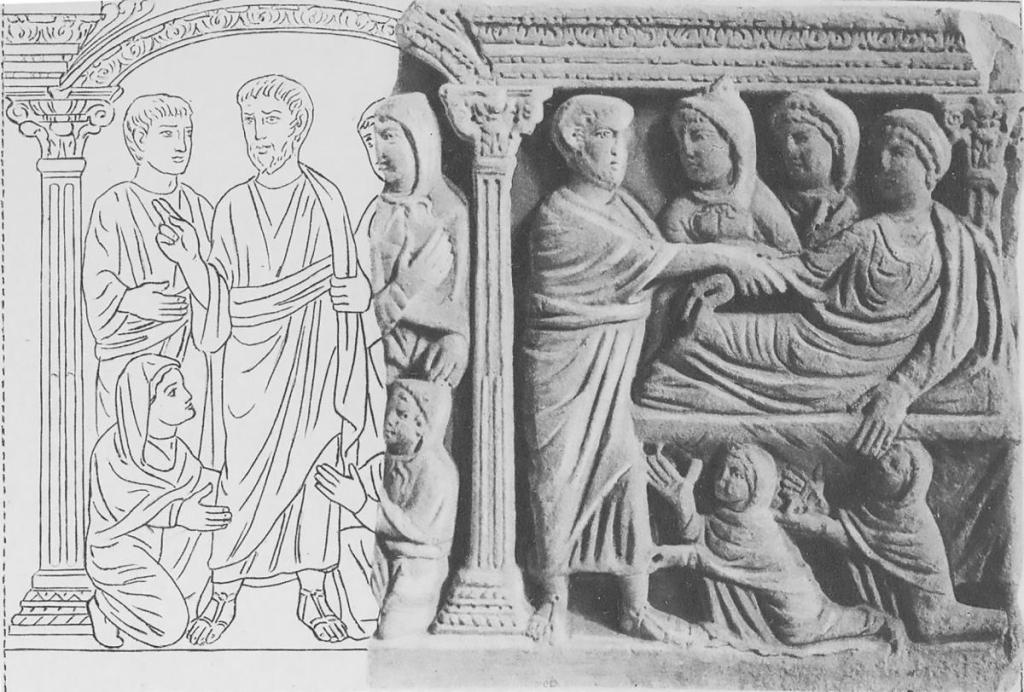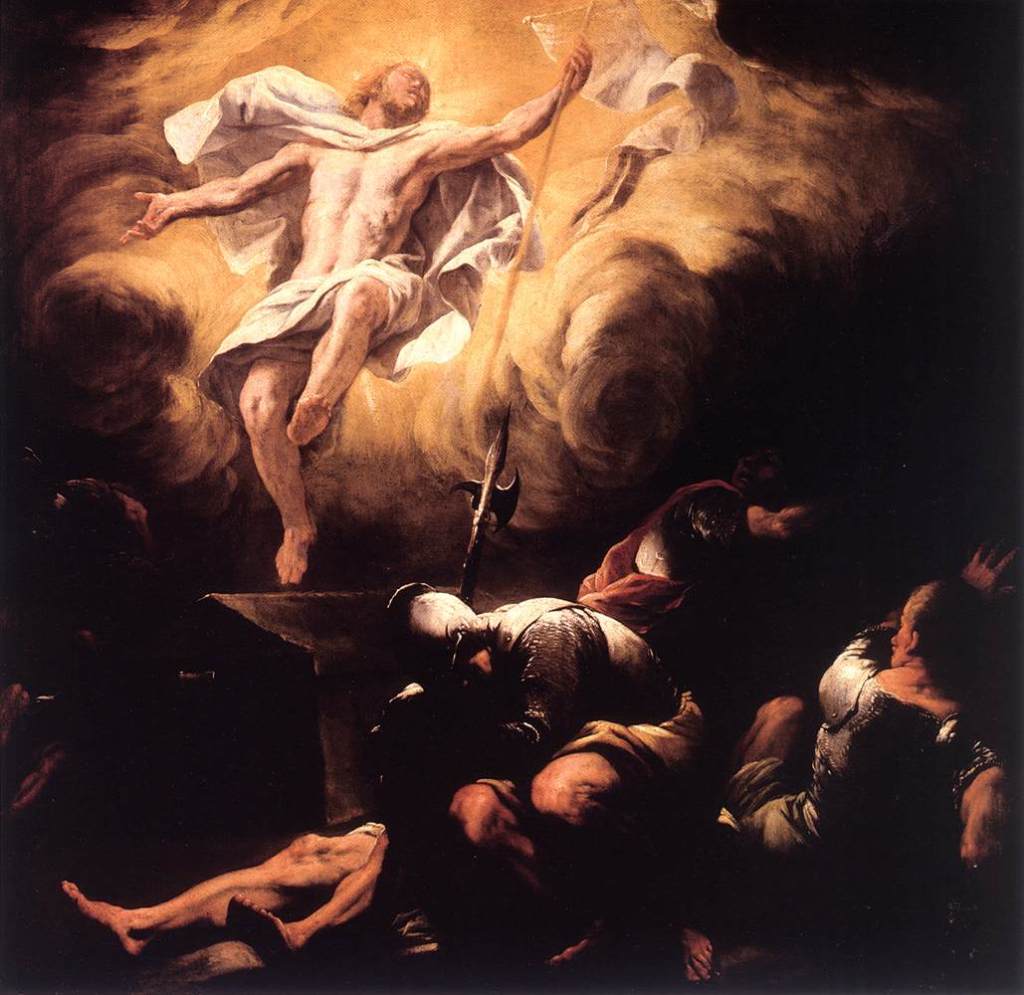
This sermon was preached on the Sixteenth Sunday after Pentecost (September 25, 2022) at Christ Lutheran Church in Fredericksburg, VA. You can listen to this sermon at my podcast, 2 Penny Blog.
As one reads through Genesis, we are taken from the macro level to the micro level…a cosmic scale to the personal. After creation related stories (which include the Flood and the Tower of Babel), we have a cycle of stories about Abraham, followed by a cycle about Jacob, later renamed Israel, Abraham’s son, and finally the famous story of Joseph, Jacob’s most beloved son. Roughly fourteen of fifty chapters of Genesis deal with the saga of Joseph, so we can expect that the story just might be an important one.
Many of us are familiar with the story – Joseph’s amazing, valuable “coat,” a gift from his father, setting off the jealousy of his brothers. This leads him to be cast into a pit and eventually into slavery. It is in that darkness that his gift of God’s favor, exemplified by his ability to interpret dreams, his uprightness, and skills, lead him into an historic rise to eventually sit in a seat of power by the side of Pharoah. Yet today’s part of the story is often overlooked. It is quite scandalous after all. It is uncomfortable. Joseph is accused of one of the most violent and horrific crimes one can commit against another.
Here, we have a slave, who by the norms of the time did not even own his own body, reject the advances of his master’s wife because he knew it would dishonor his master and more importantly his God. The commandment against adultery did not exist yet, but even the ancients understood such betrayal can lead to great harm and even greater violence. Potiphar’s wife coveted Joseph in his youth. Once denied, she betrayed him further. Holding onto his cloak as Joseph ran away, his cloak, his nakedness, would be used to prove the case of violent sexual assault that she would raise against him.
As an aside, I find it interesting that just as a cloak caused him to be cast into slavery, a second cloak now would be used to cast him further down into prison – if not toward death itself.[i] Further, I think it is interesting to note that the Hebrew verb often used for garments and cloaks, beged, sounds very much like the noun, bagad, the word sometimes used for marital unfaithfulness (as in Jeremiah 3:7-8, 20; Malachi 2:14).[ii] Perhaps these similar repetitions help reflect the ancient oral roots of this story before it was even written down. Repetition and rhyming would help people remember the story. We just don’t know for sure.
In any event, we have a man falsely accused and testified against. Potiphar’s wife seeks to discredit him not only as someone guilty of sexual assault but also, worse than being a slave perhaps, he’s labeled as a foreigner. She would use whatever bias and accusation she could to diminish and punish Joseph even though she knew of the potential consequences. Poor old Joseph was cast into the pit once again, so to speak, and left for dead. This time, he was in prison perhaps for the rest of his life.
Yes, we likely want to judge Potiphar’s wife harshly. I’ve been at the receiving end of false accusations especially when a police officer – a few times very serious accusations – but fortunately, people recanted, or there was plenty of evidence to prove the accusations unfounded. Yet, each time I’d feel angry…wounded…set adrift as I waited for vindication. I imagine many here know of what I speak, even if the accusations and gossip you faced were not as serious. People can gossip and lie about us. Perhaps the wrongs we think of were even committed by a family member. My goodness, I think my little brother’s favorite phrase in the English language was, “He did it!” whether I did it or not.
Joking aside, in families and society, we can be quick to judge and accuse. We can be like Potiphar’s wife. Sometimes the accusations and suspicions can be so severe that the victim of these lies suffers greatly and does not recover easily…an example might be Richard Jewel who was falsely accused of being the bomber of the 1996 Atlanta Olympics. (There’s a recent movie about his experiences.) At other times, we hear of people that harm themselves or others because of accusations, gossip, or doubts. It is hard to live among others when you feel everyone is judging you…has perhaps labeled you…in effect has abandoned you.
Of course, sexual assault is very serious, but so is the act of false accusation itself. Such behaviors can tear a community or person apart. It can murder a person’s spirit. A little lie can become a great injustice. Through the Ten Commandments, God will later appeal to Moses and the twelve tribes of Israel, descendants of Joseph and his brothers, to not bear false witness. God knows the disunity and violence that can result. Many moderns wrongly assume this alludes only to serious proceedings in court or the public square, but that’s not traditionally how it was understood among many earlier Christians. Some of the earliest leaders of the Church would argue that instead of accusing others, we should instead make excuses for our neighbor and judge ourselves harshly.[iii] St. Ephrem famously prayed, “Yes, O Lord and King, grant me to see my own faults and not to judge my brother, since you are blessed to the ages of ages.”[iv]
In his work of reformation and his own experience with grace, Martin Luther argued similarly but perhaps pushed it a bit further. Recognizing how important our reputations are (our honor) to living with others, he understood the theft of such honor…the killing of another’s honor through even the act of idle gossip…was a great sin. Indeed, in the Large Catechism as he examines the 8th Commandment as Lutherans count them (“Thou shall not bear false witness”), he argues we all have been guilty of it. In our own misuse of scripture or “other sins of the tongue whereby we may injure or approach too closely to our neighbor,” we violate this precept.
He writes: “Here belongs particularly the detestable, shameful vice of speaking behind a person’s back and slandering, to which the devil spurs us on, and of which there would be much to be said. For it is a common evil plague that everyone prefers hearing evil to hearing good of his neighbor; and although we ourselves are so bad that we cannot suffer that anyone should say anything bad about us, but everyone would much rather that all the world should speak of him in terms of gold, yet we cannot bear that the best is spoken about others.” Yes, we can grow jealous like Joseph’s brothers. If one doubts Luther’s insights, consider all the money made from gossip related articles, social media posts, and shows just over the last week about the royal family in England. Humans seem to hunger for gossip and scandal when it is about others.
In Luther’s argument, “False witness, then, is everything which cannot be properly proved.” It can be rooted in our jealousy or judgement of others. We can acknowledge wrongs. Yet, we don’t have the right to judge anyone unless called to serve as a civic judge, or unless (ultimately) we erroneously think we are God. More than that, like the Patriarchs in the early church, Luther argues that we should always seek to speak the best of people…to reframe them and their behaviors in the best possible light…to be gracious to them as God is so gracious to us with all our own secret sin and shame.
In this sacred account, we don’t hear if Potiphar’s wife ever faced consequences for her sins, but we do see how Joseph responds. One might argue that he turned the other cheek. He does not obsess about her. Even as he acknowledges he had been wronged; we never hear that he cursed her to hell. Instead, we see a young man with seemingly everything against him who perseveres and preserves his own honor before God. He seeks to honor God through mastering his own behaviors and response. It reminds me of a 12 step maxim. When in relationship with other neighbors doing wrong, making a mess on their side of the street, all we can really do is clean up our own side of the street. That’s the only place we really have power. We do so and trust that God will make things work out in the end.[v]
The Psalms, often songs of lament, speak of such betrayal as well. A young couple I know, dear friends of mine, were recently tasked to write a song representing Psalm 109. The lyrics could be our own prayer when we are gossiped about or betrayed:
I come to you small and needy,
my heart knows many scars.
My friends have all betrayed me,
You know just who they are.
My enemies surround me, they curse me with their tongues,
repaying good with evil, returning hate for love.
So, I pray when my hands and heart are weak,
when there’s nothing left in me, you’re my Defender.
And through the night, you’re bringing truth to light,
So, I don’t have to fight, you’re my Defender.[vi]
Yes, as with Joseph, the Lord is our defender, and we don’t have to fight. We don’t have to lower ourselves to act like our accusers. We are asked only to trust God and love as best as we are able in Jesus’ name. For whatever others might say, Jesus says he loves us and is with us always. We are clothed in God’s grace, and our accusers, not even Satan himself, will ever win the day. Amen.
[i] Strom, B. (2017). “Luther on Do Not Bear False Witness Against Your Neighbor” downloaded from https://seekingvirtueandwisdom.com/luther-on-do-not-bear-false-witness-against-your-neighbor on September
[ii] Hamilton (2022). The Book of Genesis: Chapters 18-50. New International Commentary on the Old Testament Series, 465, as quoted in “Joseph’s Other Coat” at A Trivial Devotion blog downloaded at http://trivialdevotion.blogspot.com/2011/12/wrongfully-accused-josephs-other-coat.html on September 21, 2022.
[iii] Strom, B. (2017). “Luther on Do Not Bear False Witness Against Your Neighbor” downloaded from https://seekingvirtueandwisdom.com/luther-on-do-not-bear-false-witness-against-your-neighbor on September 21, 2022.
[iv] https://en.wikipedia.org/wiki/Prayer_of_Saint_Ephrem as quoted by Strom, B. above.
[v] Alcoholics Anonymous.
[vi] Labriny, S. and Henretty, N. (2022). “Defender.” Stewarding Praise (Psalms 107-112) by Cardiphonia Music.
Unless otherwise indicated, all scripture quotations for this post are from the New Revised Standard Version (NRSV) translation.
© 2022 The Rev. Louis Florio. All content not held under another’s copyright may not be used without permission of the author.










